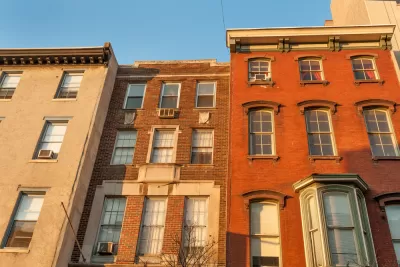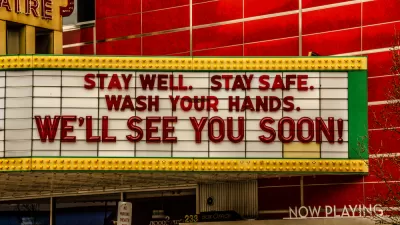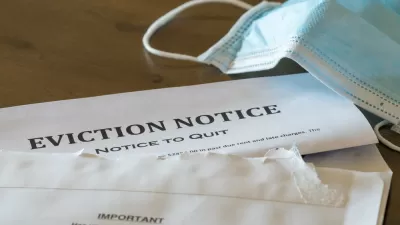The Eviction Lab at Princeton University is using data to tell the story of thousands of tenant evictions. Matthew Desmond, the Lab's director, shares stories of tenants and insights about the compounding danger of mass evictions and COVID-19.

Matthew Desmond, director of the Eviction Lab at Princeton University, understands the devastating impact of eviction during a time when unemployment has reached levels to rival those seen during the Great Depression. Demond's recent opinion piece describes the real-life consequences of insufficient federal rental aid support and a housing crisis that forces the majority of sub-poverty line tenants to allocate over half of their income to rent.
During the coronavirus lockdown, the constant threat is simply heavier. "During a pandemic that forcefully links our health to our homes, eviction will help spread the virus, as displaced families crowd into shelters, double up with relatives and friends, or risk their health in unsafe jobs to make rent or pay for moving expenses," writes Desmond.
Data recently released by Desmond's team at Princeton's Eviction Lab shows that of the 1,795 new eviction cases filed in Phoenix during the month of July, about 18% of cases were caused by an unpaid sum of $500 or less. Through the Lab's research, Desmond knows very well the weight of the monthly rent payment for families across the country:
Rent — it’s the greediest of bills. For many families, it grows every year, arbitrarily, almost magically, not because of any home improvements; just because. And unlike defaulting on other bills, missing a rent payment can result in immediate and devastating consequences, casting families into poverty and homelessness. If you can’t afford enough food, you can usually qualify for food stamps. If you miss a mortgage payment, you typically have 120 days before your bank can initiate the foreclosure process. But if you can’t pay your rent, you can lose your home in a matter of weeks.
What we need, says Desmond, is not mass eviction, but effective rental assistance. Congress needs to step up to protect Americans through substantive action and generous federal benefits, adds Desmond.
FULL STORY: The Rent Eats First, Even During a Pandemic

Planetizen Federal Action Tracker
A weekly monitor of how Trump’s orders and actions are impacting planners and planning in America.

Maui's Vacation Rental Debate Turns Ugly
Verbal attacks, misinformation campaigns and fistfights plague a high-stakes debate to convert thousands of vacation rentals into long-term housing.

Restaurant Patios Were a Pandemic Win — Why Were They so Hard to Keep?
Social distancing requirements and changes in travel patterns prompted cities to pilot new uses for street and sidewalk space. Then it got complicated.

In California Battle of Housing vs. Environment, Housing Just Won
A new state law significantly limits the power of CEQA, an environmental review law that served as a powerful tool for blocking new development.

Boulder Eliminates Parking Minimums Citywide
Officials estimate the cost of building a single underground parking space at up to $100,000.

Orange County, Florida Adopts Largest US “Sprawl Repair” Code
The ‘Orange Code’ seeks to rectify decades of sprawl-inducing, car-oriented development.
Urban Design for Planners 1: Software Tools
This six-course series explores essential urban design concepts using open source software and equips planners with the tools they need to participate fully in the urban design process.
Planning for Universal Design
Learn the tools for implementing Universal Design in planning regulations.
Heyer Gruel & Associates PA
JM Goldson LLC
Custer County Colorado
City of Camden Redevelopment Agency
City of Astoria
Transportation Research & Education Center (TREC) at Portland State University
Jefferson Parish Government
Camden Redevelopment Agency
City of Claremont





























